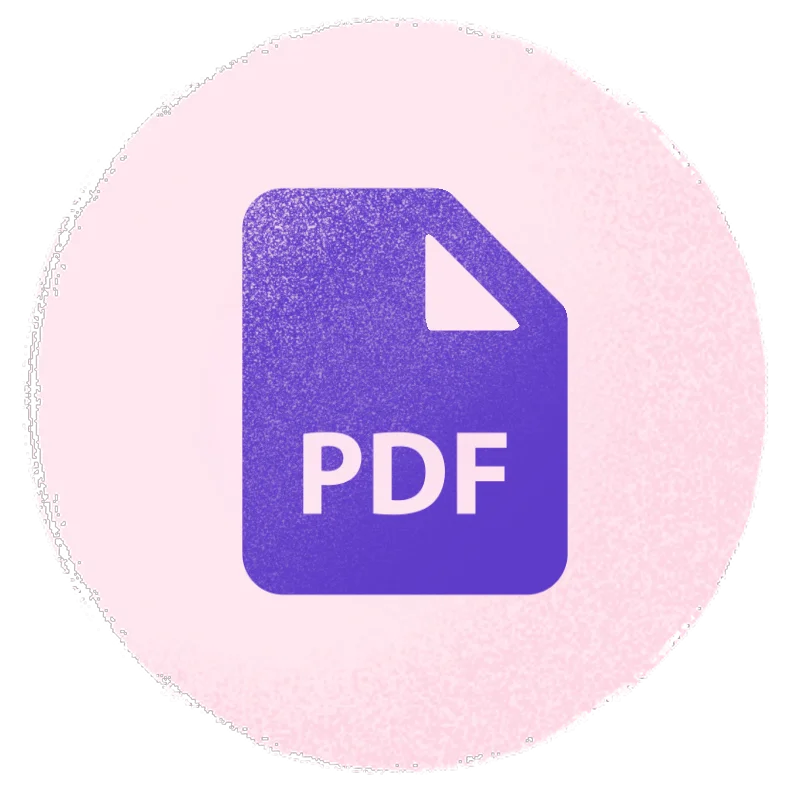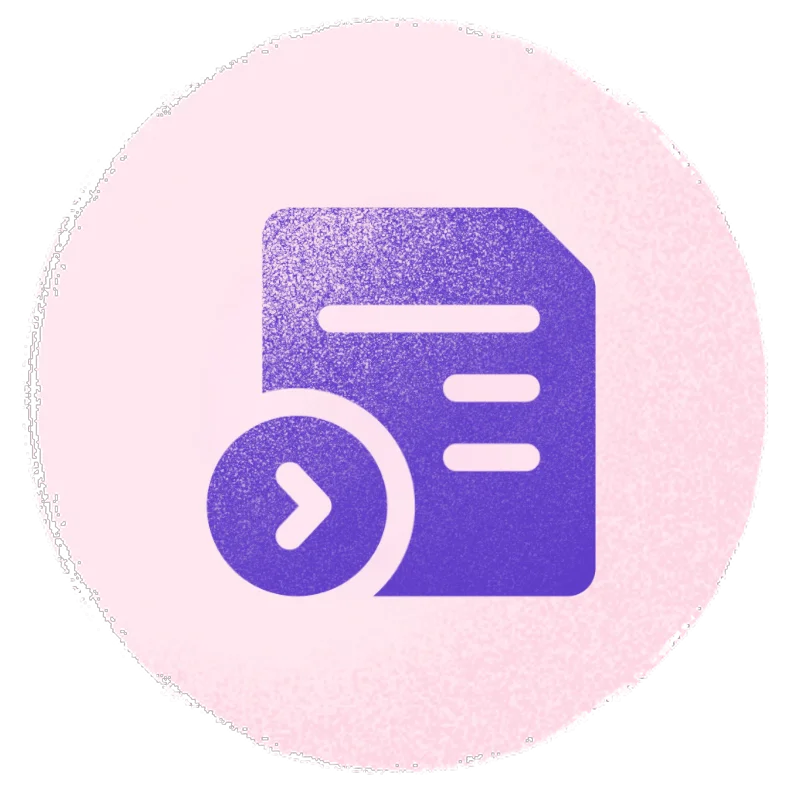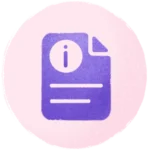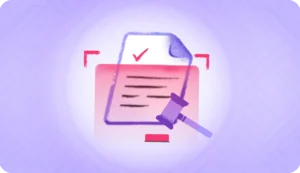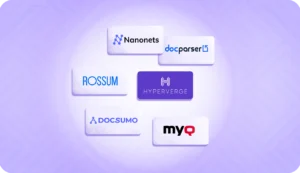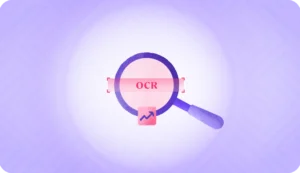Tax consultants, lawyers, and notaries handle large volumes of physical and digital paperwork in the legal field. Their main tasks include collecting, analyzing, and using legal documents. Many of these activities are automated, and software for the automatic drafting of legal documents is widely used.
However, the search and analysis of digitized documents remain labor-intensive. OCR (Optical Character Recognition) can solve this. OCR transforms various documents, such as scanned paper, documents, and PDFs, into editable and searchable data and text formats.
OCR software automates the extraction and analysis of information from legal documents, saving time and improving accuracy and efficiency. Implementing OCR for processing legal documents is vital, transforming how legal professionals handle and process large amounts of data.
Decoding what OCR means for legal document processing
Law firms can use OCR technology to analyze files and process various types of digital files and digital formats of legal documents, such as:
Real estate law
In real estate law, OCR technology assists in processing, analyzing, and evaluating documents such as land register extracts, leases, and sale contracts. A land register extract provides information about property ownership, mortgages, and other limitations, helping lawyers verify the legal status of a property before transactions. Leases outlining terms between landlords and tenants can be drafted, reviewed, and enforced more efficiently with OCR technology.
Similarly, contracts of sale and printed paper documents detailing terms of property purchases can be examined thoroughly for fairness and legal enforceability by OCR. By automating the extraction and evaluation of information from scanned printed paper documents and digital documents together, OCR significantly improves the efficiency and accuracy of legal work.
Family law
In family law, OCR is useful for handling divorce certificates, prenuptial agreements, and custody statements. Divorce certificates certify the end of a marriage, and attorneys guide clients through the process. Prenuptial agreements help couples avoid financial conflicts, and custody statements ensure the child’s best interests. OCR automates information extraction, enhancing efficiency and accuracy in managing these documents.
Labor law
In labor law, OCR is beneficial for handling documents like employment contracts and cease-and-desist letters. Employment contracts outline terms between employers and employees, and labor lawyers draft them to clarify rights and obligations.
Cease-and-desist letters, used to protect trade secrets or enforce non-competition agreements, require certain conduct to stop. OCR automates information extraction, significantly improving the efficiency and accuracy of legal work in labor law.
Corporate law
In corporate and commercial law, OCR is useful for handling documents such as extracts from the commercial register, memorandums of association, and license agreements. An extract from the commercial register provides essential legal information about a company, such as details about managing directors or capital, which lawyers use to obtain accurate company information.
A memorandum of association outlines the legal aspects of the structure and rules of a company or law firm, and lawyers assist law firms and founders of law firms in drafting these documents to ensure compliance with legal requirements. License agreements, which define the terms for the use of a law firm product or service, are drafted by lawyers to protect their clients’ rights.
Criminal law
In criminal law, OCR is relevant for handling documents like indictments and judgments. Indictments outline the allegations against a person, helping criminal lawyers defend their clients. Judgments are court decisions, and lawyers analyze them to understand their client’s legal position and decide on appeals. By making data into editable text and searchable data and automating the extraction and evaluation of information, OCR significantly enhances the efficiency and accuracy of legal work in criminal law.
Data protection law
In data protection law, OCR is useful for handling documents like privacy statements and terms of use. Privacy statements explain how a company handles personal data, and attorneys ensure these comply with privacy laws. Terms of use outline the rules for using a website or app, with lawyers reviewing or drafting them for legal soundness. OCR automates information extraction and evaluation, significantly enhancing the efficiency and accuracy of legal work in data protection law.
Tax law
In tax law, OCR is invaluable for handling documents like tax returns, tax assessments, and letters of objection. Tax returns outline income and expenses for calculating tax liability, with attorneys assisting in their completion. Tax assessments determine the tax amount due, and attorneys can appeal these if disputed. Letters of objection address discrepancies in assessments, protecting clients’ rights.
OCR automates the data management, searchable data extraction, and analysis processing of legal documents, enhancing the efficiency and accuracy of managing tax documents and streamlining tax law processes.
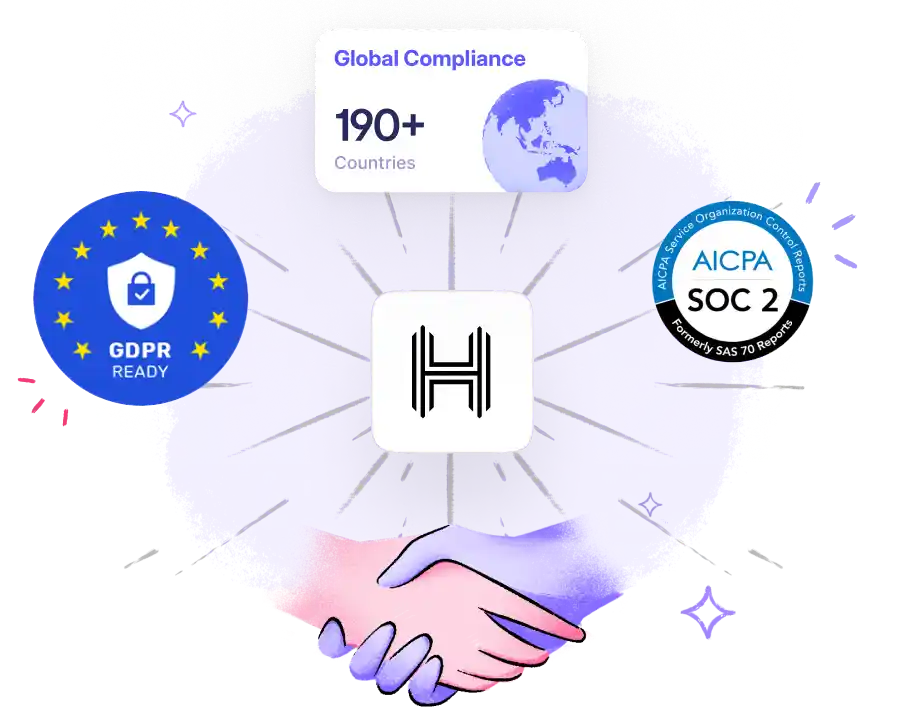
Administrative law
In administrative law, many law firms utilize OCR for various documents, including appeal letters, review filings, administrative decisions, and statements of claim. Appeal letters, formally addressed to authorities, seek to contest their decisions, with administrative and law firms and attorneys aiding clients in preparing and presenting appeals accurately.
Administrative decisions and official notifications from authorities regarding specific matters may be challenged through appeals facilitated by administrative lawyers if law firms or clients disagree with the rulings of court officials.
Moreover, statements of claim filed with administrative courts to contest administrative acts are drafted by administrative lawyers to advocate for clients’ interests in legal proceedings. OCR streamlines the extraction and analysis of information from these documents, enhancing the efficiency of administrative law processes.
Contract law
In contract law, OCR proves indispensable for handling various documents, including sales contracts, service contracts, and confidentiality agreements. Sales contracts, facilitating the purchase and sale of goods between parties, require meticulous drafting, review, and enforcement by contract attorneys to safeguard the rights and interests of both sides.
Similarly, in the legal industry, service contracts outlining terms for service provision necessitate the precise formulation of crucial details regarding service descriptions, payment terms, and other pertinent points, with many legal industry experts offering guidance in their creation.
Additionally, confidentiality agreements, binding parties to non-disclosure of specific information, are crucial for safeguarding trade secrets and sensitive data, with contract attorneys drafting these agreements to ensure comprehensive protection. OCR facilitates efficient extraction and analysis of relevant information from these documents, enhancing the efficacy of contract law processes.
Medical law
In medical law, various legal documents, such as living wills, informed consent forms, and liability claims, can play pivotal roles. A Living Will allows individuals to outline their medical preferences or refusals in specific scenarios, with medical law attorneys offering legal advice on the legal aspects of drafting and wording these directives.
Informed consent forms inform patients about medical procedures and associated risks, with medical lawyers addressing disputes in public health and advising on physicians’ duty to inform or represent them in legal matters. Additionally, liability claims arise from medical errors, and medical law attorneys aid patients in pursuing claims for appropriate compensation from legal professionals.
How does OCR for legal document processing work?
OCR for legal document processing involves several key steps:
Document scanning: The process of OCR legal documents begins with converting paper documents and scanning the legal documents using a scanner or digital camera to create digital images of legal documents. These are scanned documents in various formats like case files, PDFs, or JPEGs.
Text recognition: OCR software then analyzes these digital images to identify and recognize the text within them. This full character recognition also involves converting the text from the images captured in the image format into machine-readable text characters. Advanced OCR processing and optical character recognition algorithms use pattern, optical character recognition, and machine learning techniques to accurately identify and interpret text, even from poor-quality scans of printed or handwritten text documents.
Legal document classification: After the text from scanned images of paper documents has been recognized, the OCR software categorizes the documents based on their content and context. This involves transforming scanned digital or converting paper documents into paper documents and classifying them into specific legal categories or types, such as contracts, agreements, court filings, or correspondence.
Data extraction: OCR software extracts relevant data from the text based on predefined rules or patterns once the scanned image or scanned documents are classified. They can extract data in digital formats and may include extracting names, dates, addresses, contract terms, or any other relevant information specified by the user. Advanced OCR systems can handle complex documents with multiple data fields and formats.
Process legal documents with AI-powered OCR software. Get a Free Demo now.
Benefits of using OCR in legal document processing
Using the OCR capabilities in legal, document management software and word processing software offers several significant benefits:
Document management and retrieval: OCR technology makes legal documents a text searchable PDF and easy to organize. This improves document management by allowing legal professionals to locate and retrieve specific documents or information within them quickly. Lawyers can use keywords to find relevant documents in seconds instead of manually sifting through piles of paper text.
Improving accuracy: Manual data entry is prone to errors, especially when dealing with large volumes of scanned documents. An OCR system reduces these errors by digitizing printed paper documents and automating text recognition. Advanced OCR systems have high accuracy rates, ensuring that extracted information is reliable and precise.
Saves cost: By automating the extraction and processing of information from legal documents, implementing OCR also significantly reduces the need for manual labor, thereby lowering administrative costs associated with hiring staff for data entry and document management. Additionally, it reduces costs related to the storage and physical handling of paper documents.
Increasing productivity: OCR streamlines the workflow in legal practices by speeding up the document processing tasks. Lawyers and support staff can spend less time on routine administrative tasks and prioritize substantive legal work. This boost in productivity allows the legal teams and law firms to handle more cases and clients efficiently.
Automate legal document processing with OCR

OCR solutions help legal professionals and companies process documents efficiently by automating data extraction and word processing software, improving accuracy and faster document processing. They can also aid legal professionals in preventing fraud by verifying the authenticity of documents quickly.
Hyperverge’s advanced OCR software is perfect for legal professionals and law firms everywhere, offering high accuracy and support for various document types. Our document management software streamlines workflows, converting paper documents and enhancing productivity in the legal world.
Learn more about Hyperverge’s OCR software solutions, and sign up to streamline your legal document processing today.











